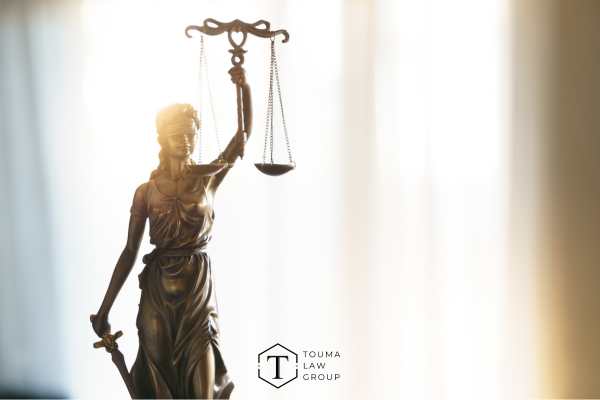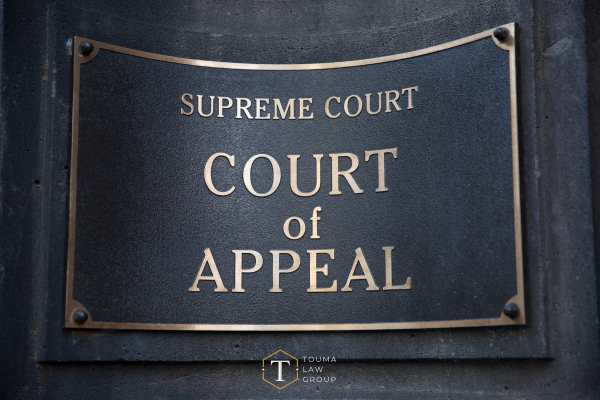Navigating the complexities of the legal system can be daunting, especially when it comes to appealing a criminal conviction in South Carolina. Whether you believe there has been a legal error, new evidence has come to light, or there were procedural mistakes in your trial, understanding how to effectively appeal a conviction is crucial for seeking justice and potentially overturning the verdict.
This guide will walk you through the detailed process of filing an appeal, from identifying valid grounds and understanding critical deadlines to presenting your case effectively in the appeals court.
If you or a loved one are considering an appeal, it’s essential to act promptly and with informed guidance. The appeal process is intricate and adheres to strict procedural protocols that can significantly impact the outcome. Contact our Greenville criminal appeals lawyers to discuss your case and explore your options. Call us at (864) 618-2323 to schedule a free consultation.
Understanding the Basis for an Appeal
Filing an appeal for a criminal conviction typically revolves around several key legal grounds, each based on potential errors that could have affected the trial's outcome. One common ground for appeal is legal errors, which can include mistakes made by the judge during the trial, such as incorrect jury instructions or inappropriate rulings on the admissibility of evidence. These errors must be significant enough to have potentially altered the verdict to be considered grounds for an appeal.
Another basis for appeal is procedural errors. These might involve violations of due process, such as not allowing the defendant adequate time to prepare their case or improper handling of motions that could have a bearing on the outcome of the trial.

Ineffective assistance of counsel is also a recognized ground for appealing a criminal conviction. This occurs when a defense attorney's performance falls below an objective standard of reasonableness and, as a result, harms the outcome of the case. Demonstrating this typically requires showing specific ways in which the attorney's performance was deficient and how these deficiencies adversely affected the defense.
Furthermore, if new evidence emerges that could potentially exonerate the defendant or significantly alter the verdict, this may also serve as a basis for an appeal. However, proving this typically requires showing that the evidence was not available at the time of the original trial through no fault of the defendant.
Each of these grounds for appealing a criminal conviction involves complex legal arguments and a thorough understanding of both the law and the details of the specific case. For anyone considering an appeal, it is crucial to seek the advice of an attorney who has a deep understanding of the intricacies of the legal system in South Carolina.
How Long Do You Have to File an Appeal
In South Carolina, the timeline to file an appeal for a criminal conviction is quite strict. Generally, you must file a notice of appeal within 10 days of the sentencing or judgment being rendered in the lower court. This deadline is crucial because failing to file within this period can result in the loss of the right to appeal.
The Process of Filing an Appeal
Here’s how the process typically unfolds:
- Notice of Appeal: This is filed with the clerk of the lower court (where the conviction occurred) and it needs to clearly state the intention to appeal against the judgment. The notice of appeal must include specific information about the judgment or order being appealed.
- Transcript Request: Alongside or shortly after filing the notice of appeal, you should request a transcript of the trial proceedings from the court reporter. This transcript is essential for the appellate court to review the proceedings that took place during your trial.
- Filing with the Appellate Court: After the notice of appeal, the complete record on appeal, including the transcript and all relevant documents, needs to be prepared and submitted to the appellate court. This submission must adhere to specific formatting and content requirements detailed by the court.
Related: How Much Does a Defense Lawyer Cost?
Given the stringent timeline and the detailed requirements for an appeal in South Carolina, it is highly advisable to seek the assistance of an attorney as soon as possible after conviction. An experienced appellate lawyer can ensure that all procedural requirements are met and that your appeal is as compelling as possible.
This legal guidance is crucial, not only for navigating the complexities of the appeal process but also for effectively advocating on your behalf to potentially overturn the conviction.
What to Do If the Appeal is Denied
If an appeal for a criminal conviction is denied, it can be a discouraging outcome, but there are still several avenues you might consider to challenge the conviction further or address the sentence. Here are other options you have:
If an appeal for a criminal conviction is denied, it can be a disheartening outcome, but there are still several steps that might be pursued to challenge the conviction or sentence further.
Petition for Rehearing
Initially, you could consider filing a petition for a rehearing with the same appellate court that denied the appeal. This request would need to highlight any perceived errors or important issues that you believe the court overlooked or misinterpreted. Rehearings are not granted frequently, so the arguments need to be compelling and clearly demonstrate an oversight or misinterpretation that could change the outcome of the case.
Appealing to a Higher Court
Should the rehearing option not be viable or if it is unsuccessful, the next step might involve escalating the appeal to a higher court. For example, if an intermediate court of appeals initially handled your case, you could petition for your case to be heard by the state's supreme court.
This higher court typically selects cases that have significant legal implications or that may resolve inconsistencies in the law. However, getting a case heard at this level is challenging and requires presenting issues of broader legal importance.

If the case involves federal law or constitutional issues, another long-shot option is petitioning for a writ of certiorari to the United States Supreme Court, where you ask the highest court in the country to review your case. Like state supreme courts, the U.S. Supreme Court selects very few cases for review, focusing on those with national significance or those needed to resolve conflicts among different courts.
Post-Conviction Relief
Another pathway could involve pursuing post-conviction relief, which is a separate process from direct appeals and is used to challenge a conviction on grounds that are not directly related to the trial record. Common claims in post-conviction relief petitions include new evidence that could exonerate the defendant or claims of constitutional violations such as ineffective assistance of counsel.
Clemency or Pardon
For individuals serving a sentence, applying for clemency or a pardon could also be a consideration. This does not overturn the conviction but can lead to a reduction or elimination of the penalties associated with it.
Throughout these processes, it is crucial to have legal representation. An experienced criminal appeals lawyer can offer invaluable assistance in navigating the complexities of the legal system, ensuring that all potential avenues for relief are thoroughly explored and effectively pursued. Legal guidance is essential for anyone looking to understand the full range of options available following the denial of an appeal in a criminal case.
Do You Have a Case to Appeal? Call Our Firm
Navigating the appeals process for a criminal charge can be complex and daunting. It requires not only a deep understanding of legal principles and procedural nuances but also a strategic approach tailored to each unique case. If you or a loved one are considering an appeal, it is crucial to act swiftly and effectively, as the timeframes for filing appeals are often very strict, and the stakes are exceptionally high.
At Touma Law, our team of experienced appellate lawyers is dedicated to providing robust legal representation for those seeking to challenge their criminal convictions. We understand the intricacies of appellate law and are committed to exploring every legal avenue to ensure the best possible outcome for your case. Our goal is to help you navigate through this challenging time with confidence and to advocate passionately on your behalf.
If you believe there has been an error in your trial, or if new evidence has surfaced that could impact your conviction, do not hesitate to contact us. We invite you to schedule a consultation to discuss the specifics of your case and to learn more about how we can assist you in the appeal process. Contact our firm today, and let us help you take the first step towards securing justice and reclaiming your future.



